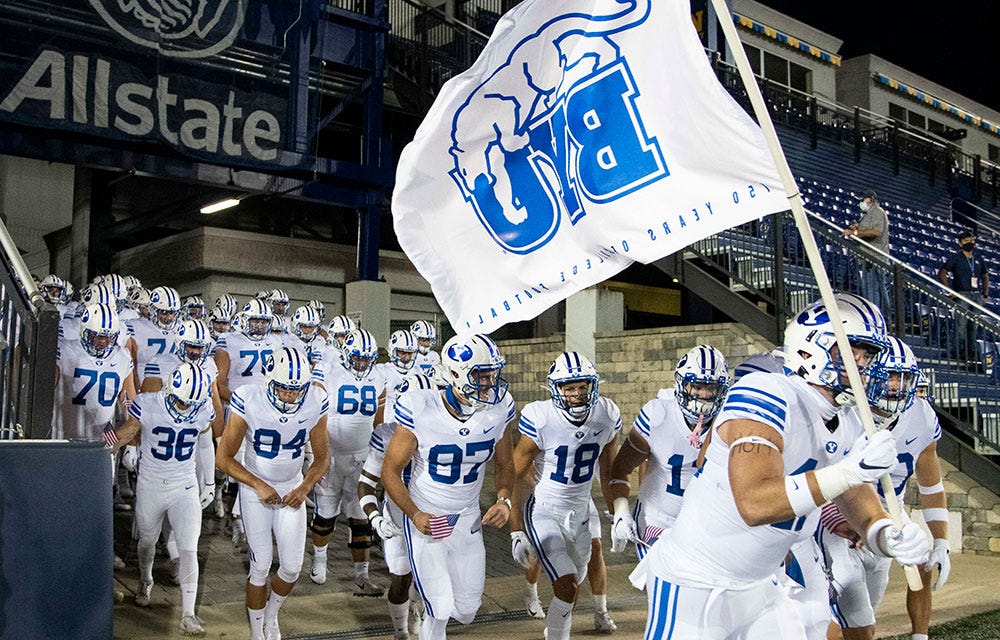Why does BYU football matter in college golf? Because the Cougar program might have just devised an NIL (name, image, likeness) strategy that could play out down the road on college golf teams.
In men’s college golf the NCAA allots 4.5 scholarships for a Division I men’s golf program. Could this model be applied to a college golf team to allow an entire roster to not have to have to pay for tuition?
The waters of the NCAA’s name, image and likeness rules just continue to be really murky.
There aren’t really set guidelines on what deals players are allowed to participate in outside of a few distinct categories. It also is largely left up to schools to legislate players in their own ways.
So, of course with so many grey areas in play, boundaries are bound to be pushed. And that seems to be what’s happening with BYU’s new NIL deal for its players involving one of its partners, Built Brands, LLC.
Built Brands produces Built Bar energy products, which are essentially protein bars. On Thursday, BYU posted a video on social media with founder, Nick Greer, handing out deals to the walk-ons on the team.
As part of the deal, Built is paying the full tuition for the year for the 36 walk-ons on BYU’s roster, per the Deseret News. They’re also compensating the entire roster of 123 players, though the figures weren’t made clear.
In return for paying the player’s tuition, the team will wear Built Brands branded helmets in practice and participate in Built Brands events. They’ll also include Built “fueling areas” in the two football locker rooms.
Look, this is pretty good news. Anything that pays for the education of these student-athletes and properly compensates them for their work on the field is a pretty great thing. At the end of the day, that’s what matters most.
But this feels like a pretty huge loophole that could change the shape of college football as we know it.
BYU just got one of its partners to not only compensate its players but also pay the entire tuition for a year for their walk-ons. These players are no longer walk-ons — the entire “walk-on” concept disappeared when this deal was inked.
And that’s not a bad thing at all. The players should be paid. But BYU could easily use this as a recruiting pitch for future athletes. It’s not a scholarship, but it feels almost if it’s presented as one.
That last point is very important. This is not a scholarship. It’s a business deal. And as a business deal, this will be taxed. So does that mean the players will have to pay money on their tuition anyway? That’s an important question that needs to be answered.
Now, that doesn’t mean this is a bad deal or this is something the players shouldn’t do. By all means, when money is presented to you and the deal is right you should take it. But there’s reason to be skeptical about BYU’s intentions with all of this.
They’re just the first to do this. Other teams will almost certainly follow suit and offer these sorts of deals as perks to student-athletes.
And as they do, protections for these students will be more essential than ever on the back end.
This story originally appeared on ftw.usatoday.com.

